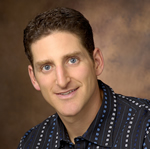With the daily demands life puts on us, it is stressful to provide comprehensive daily care to elderly parents when one or both parents are not as independent anymore. It’s usually the daughter caring for her elderly mother or father. The family caregiver can become mentally and physically exhausted, irritable and resentful.
Just like our own pool of physical energy, the mental energy required to provide care to loved one has a limit. When it becomes very stressful to see a loved one struggling with independence, sometimes with high demands – at the end of the day it can be exhausting. There’s only so much energy you can give…it is NOT an unlimited resource.
Are you:
- Waking up tired and looking forward to going back to bed?
- Having trouble concentrating or staying focused?
- Feeling helpless or more emotional than you expected?
- Not seeing friends that you used to see regularly?
- Short-fused and reacting with anger much too easily?
These can be quick indicators that you are fatiguing both mentally and physically and that you could be at the end of your rope.
So what can you do about it?
I’ve summarized a few tips for you that, if implemented, will guarantee you some effective relief.
- Accept some help – consult professionals like Nurse Next Door and see if a caregiver would be appropriate for your family situation. A compassionate caregiver provides much needed help with hands on care, homemaking, etc to help family members avoid physical and mental burnout, as well as easing of the associated guilt of not being able to do ‘everything’. This also allows families to spend the actual quality family time together in the limited time we all have these days.
- Take care of yourself – how many times have you read that a full sleep, exercise, good nutrition, and relaxation are the keys to feeling great. That’s because it works! Too many of us read this info and then forget about it 5 minutes later because we’re too busy to act on it. Stop! Prioritize! Take a look from a higher view, where it’s easier to observe what’s really important in the big picture.
- Have realistic expectations – be realistic about what you expect of yourself. We can’t always be everything to everyone. In a family caregiving sense, this is where a lot of people get into trouble. An elderly parent may make comments about how the adult child “should” be providing the care, without considering the exhaustion it may be bringing on. You have to be confident enough to say when ‘enough is enough’.
- Try to look at it from the aging loved one’s perspective. Losing independence and being faced with major changes as an elderly senior is VERY daunting. The idea of being forced to move from one’s long-time home is very distasteful. Consider these types of fears when in conversation.Any one of these tips on their own can provide much relief, but used together in combination they become much more powerful. It may be better to burn out than to fade away, and it’s even better to avoid burning out or fading away!
Tawnya and Chris Wilkinson Nurse Next Door
Nurse Next Door
Home Care Services
250-748-4357 (Duncan); 250-667-0190 (Nanaimo); 250-927-1895 (Parksville)
Nurse Next Door
Email Nurse Next Door
See all articles by Tawnya and Chris Wilkinson




As an advocate for seniors in Nanaimo and having gone through watching an early onset of Alzheimer take my mom away in huge chunks years back..I understand the feelings well.
You could have also mentioned that when one is a caregiver, the very first place they should call is Home Support (VIHA).IO would recommend this prior to “paying” to have a service provided. When they are advised what is happening with the aging parent, with some verbal pushing and shoving, they will come out and do an evaluation. Once the parent has become a part of the “system”, that gives them “a leg up” for placement in a facility if that becomes necessary. This, in my view, is key. I would also add here that when an evaluation is scheduled to be done, one of the adult children should do their very best to be there with the parent. Aging parents, when asked questions do often not say it as it is, but tend to downplay their issues.
Hope this provides some assistance…..
Yours
June Ross
Nanaimo
Hey June! Thank you for your comments. Yes – indeed you are correct – VIHA is a great place to direct families and individuals first. Or what I would suggest, is concurrently – as VIHA’s resources often don’t permit quick response, and families/individuals often need assistance immediately.
And great tip about the adult children also. We cover that in our ‘Navigating the System’ presentation and it truly is one of the important signposts of family support.
Love is in the Details,
Chris Wilkinson